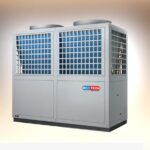A warm, inviting swimming pool can transform your outdoor space into a luxurious retreat. But keeping your pool comfortably heated—especially during cooler months—can lead to high energy bills if you’re not using the right equipment. So, what’s the most energy-efficient pool heating option available today? Let’s dive into the best choices, how they work, and what to consider when making the switch.
Understanding Pool Heating Options
There are several types of swimming pool heaters on the market. Each comes with its own set of pros, cons, and efficiency levels. The three most common types include:
-
Gas Pool Heaters
-
Electric Resistance Heaters
-
Swimming Pool Heating Pumps (also known as heat pumps)
-
Solar Pool Heaters
1. Gas Pool Heaters
Gas heaters are powered by either natural gas or propane. They heat water quickly and are ideal for pools that aren’t used regularly, or for occasional quick heating needs. However, they are not known for being energy-efficient. Operating costs are high due to the price of fuel, and they tend to emit more greenhouse gases than other options.
Efficiency Rating: Low to Moderate
2. Electric Resistance Heaters
These heaters use electric currents to generate heat. They’re generally compact and easy to install but have high operational costs. They consume a lot of electricity, making them inefficient for regular use, especially in colder climates.
Efficiency Rating: Low
3. Swimming Pool Heating Pump
The swimming pool heating pump is considered one of the most energy-efficient pool heating options. Instead of generating heat directly, it works by extracting heat from the air and transferring it to the pool water—similar to how a reverse-cycle air conditioner works.
These pumps operate efficiently in moderate to warm climates and can provide consistent, reliable heating at a fraction of the cost of gas or electric resistance heaters. While the upfront cost is higher, the long-term savings on energy bills make it a smart investment.
Efficiency Rating: High
4. Solar Pool Heaters
Solar heaters use panels to absorb the sun’s heat and transfer it to your pool water. This method is incredibly eco-friendly and cheap to operate after the initial installation. However, solar heaters depend heavily on weather conditions and sunlight availability, which can limit their effectiveness in cloudy or cold regions.
Efficiency Rating: Very High (weather-dependent)
Choosing the Right Heater for Your Needs
When evaluating which option is best for you, consider:
-
Climate: If you live in a sunny or mild climate, solar or heat pumps will serve you best.
-
Budget: Swimming pool heating pumps may cost more upfront but offer lower operational costs.
-
Pool Usage: For year-round or frequent use, heat pumps are more cost-effective over time.
-
Environmental Impact: Heat pumps and solar heaters produce fewer emissions compared to gas.
The Winner: Swimming Pool Heating Pump
If you’re looking for the most energy-efficient and cost-effective heating option for your pool, the clear winner is the swimming pool heating pump. It provides steady heating, uses less electricity than electric resistance heaters, and is less dependent on environmental conditions than solar heaters. It’s a great all-rounder for most pool owners, especially those who use their pool frequently or year-round.
Conclusion
Choosing the right pool heater is all about finding the balance between comfort, efficiency, and long-term savings. Among the various options available today, the swimming pool heating pump offers the best mix of energy efficiency, performance, and reliability. For high-quality installation and expert advice tailored to your needs, consider reaching out to Ultimate Fountain and Pools—where comfort meets smart energy solutions.

